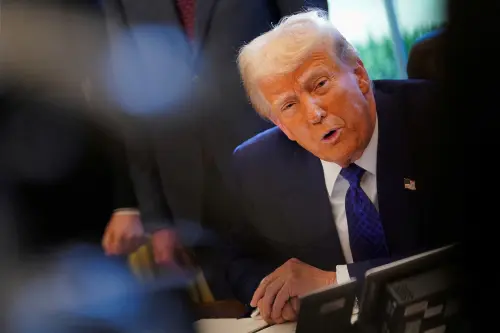On Tuesday, President Donald Trump's administration targeted bank regulators, rocket scientists, and tax enforcers for dismissal as a federal judge approved its sweeping overhaul of the U.S. civil service, at least temporarily.
Backed by Trump, tech billionaire Elon Musk's Department of Government Efficiency (DOGE) has reduced thousands of federal jobs since Trump took office last month. Trump praised Musk, claiming their efforts would save "hundreds of billions of dollars," although Musk's team reported saving only $55 billion, less than 1% of the annual $6.7 trillion federal budget.
Republicans applaud the downsizing as a corrective measure for what they see as a bloated and corrupt federal workforce insufficiently loyal to Trump. Conversely, Democratic critics accuse Trump of overstepping constitutional boundaries, jeopardizing essential government programs, and undermining middle-class families.
Musk's influence has sparked concerns about unchecked interference with sensitive government data, prompting fears and reluctance among employees to voice dissent. Despite challenges to Musk's authority, a federal judge allowed the campaign to proceed for now, expressing reservations about the unchecked power of an unelected individual like Musk.
Despite limited transparency regarding the number of layoffs, various agencies, including NASA, the IRS, and the Federal Deposit Insurance Corporation, have initiated dismissals. The White House expanded executive authority, asserting control over executive agencies except for the Federal Reserve, citing a lack of oversight over agencies like the Federal Trade Commission (FTC), Federal Communications Commission (FCC), and Securities and Exchange Commission (SEC).
The future of Neuralink employees and federal investigations involving Musk's enterprises remain uncertain. Trump emphasized that Musk would not participate in government decisions moving forward.
